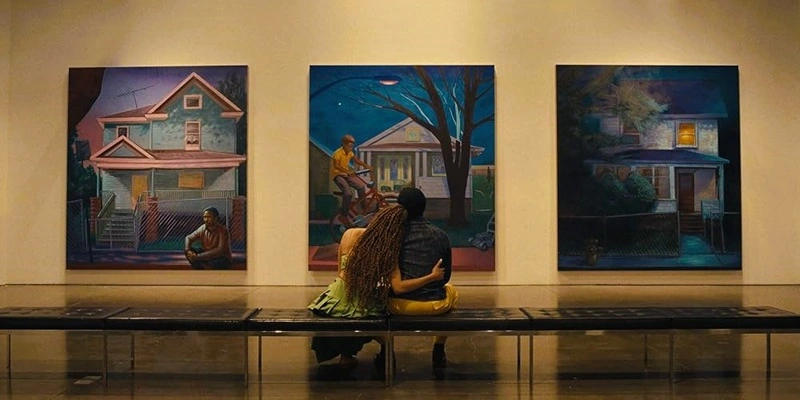Movie Review Exhibiting Forgiveness, broken present with André Holland
Cinema / Reviews - 19 October 2024
Check out the review of Exhibiting Forgiveness, the movie starring André Holland, Andra Day: plot, cast, critics

La'Ron
(John Earl Jelks) cleans rims for the owner of a liquor store, drinks what's
left of water from bottles thrown in the trash: when a thief beats the owner,
he defends him, even though he is later beaten by the assailant.
His
confusing life is different from that of his son Tarrell Rodin (André Holland),
a well-known American painter who lives with his wife, singer-songwriter Aisha
(Andra Day), and young son Jermaine. Tarrell's artwork delves into the anguish
of his youth, almost oblivious to his father. An unexpected visit from La'Ron -
a recovering drug addict - throws him into a state of confusion; La'Ron
desperately tries to reconcile with him.
The film
Exhibiting Forgiveness - released in the United States - suffers from a certain
slowness, probably due to the directorial sharpness of Titus Kaphar in his
debut behind the camera: Kaphar paints, reconfigures and regenerates history to
include African-American subjects. His works include Behind the Myth of
Benevolence and The Vesper Project. Kaphar almost seems to want to recreate
painterly stillness in moving images, creating work that is at times
alienating. Look at the Gallery: Steve McCurry, Reading is an exhibition with photos of over forty years of career
What seem
like descriptive pauses - like playing with an old friend in a pool without
water - take on additional meaning here, almost a projection of one's own
thoughts: in this case, Tarrell's. The contact with his father is the detonator
of a gift that was considered perfect and is now falling apart. When Tarrell
jerks awake and hits the wall, he relives the anguish of his past.
Present and past in the display of forgiveness
When La'Ron
confesses his past and why he hasn't dated him since adolescence, Tarrell
directs him on camera, which adds even more empathy to a long, powerful scene.
A flashback shows young Tarrell following his father around, pushing a lawn
mower to scrape together a few odd jobs, or picking up trash in a dump, until a
nail is driven into young Tarrell's foot.
If
forgiveness is allowed, the consequences that come with it are not, and you
have to get used to them. Tarrell understands this and refuses to compromise.
The nail
driven into his foot and left untreated by his father is still the mark of the
past that cannot be forgotten. The final scene, in which Tarrell intervenes in
his painting of a boy pushing a lawnmower, sheds light on the disproportionate
nature of forgiveness.
© All right Reserved













